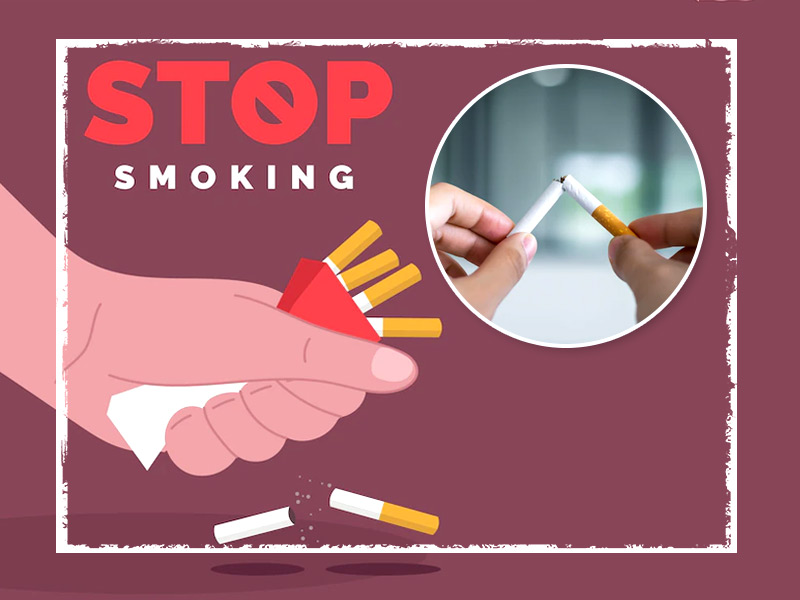
As per data released by the World Health Organisation, over 8 million people die of smoking or use of tobacco each year, 7 million from direct use while around 1.2 million people die of second hand smoke. Data also suggests that cigarette smoking is the leading cause of preventable death and diseases. From cancer to heart disease to chronic obstructive pulmonary disease (COPD), smoking leads to serious ailments and loss of lives of many across the globe. Putting a stop to smoking certainly seems like a tough job for any smoker because of the challenges of quitting smoking that follow. Find out more in this article.
Withdrawal symptoms of smoking
The most challenging part of getting rid of smoking addiction is the withdrawal symptoms after smoking that follow. Nicotine withdrawal symptoms can differ from person to person. Some of the most common symptoms include:
- severe craving
- feeling of sadness and melancholy
- remaining irritable and grouchy
- having trouble concentrating
- Restlessness
- slower heart rate
- increased frequency of feeling of hunger.
While almost every one trying to quit smoking undergoes withdrawal symptoms the good part is that they don’t last long. As per experts, worst withdrawal symptoms usually last for 3-4 weeks. However, cravings can last longer than most withdrawal symptoms.
Also Read: Foods You Must Have And Avoid To Quit Smoking

Craving food after giving up smoking
Sometimes cravings occur without any warning sign making it difficult to uphold for the person trying to quit. Various surveys suggest that cravings are often caused by reminders of smoking like sight of other people smoking or just a glimpse of a cigarette kiosk, these reminders are termed as triggers. Therefore, it is imperative to have proper plan and ways to handle such triggers.
- The best way to manage cravings is to keep busy or take up any physical activity. Involvement in activities not only helps in curbing cravings but also keep triggers at bay.
- As per experts the best way is to keep the mind busy and avoid distractions.
- More than often mood also acts like a trigger, for example people feel like smoking when they are sad or angry or hurt.
- Similarly, routine-activities that were linked with smoking in the past can be a trigger as well, like people who possess the habit of smoking while driving or smoking while out on a break can get cravings when they are doing the same activities.
Peer Pressure
Other reasons that make it challenging for people to quit smoking include peer pressure, routine habit like smoking after meals or soon after waking up and last but not the least social expectations.
- While there is no set timeline when it comes to quitting, it is said that it usually takes around 66 days to break the habit.
- There are also numerous programs that help people in quitting for example—Nicotine Replacement Therapy and Modalities to name few.
- There are varieties of things like nicotine patches, lozenges or gums that help in substituting cigarettes as source of nicotine.
- Sometimes, doctors also suggest prescription nicotine like nasal spray or inhalers for effective quitting.
- Having a support system also helps in maintain the quitting state upto a great extent.

It is for similar reason that people join support groups and try to communicate and share thoughts with others who are trying to quit as well. Quit line option is also available where toll free number are given to connect with right that will guide you in the process. If not support group, one can find solace in family member or even close friends, it’s important to open up with your support system and be honest about your progress, this way you will always feel you have someone to report to and it’s your responsibility to keep up your promise to quitting smoking.
Quitting cigarettes may seem like a very difficult thing, some people even think they are going through depression while doing so but it is important to remember that the decision to quit smoking is always good no matter how severe withdrawal symptoms are.
(With inputs from Ms. Ratandeep Chawla, Senior Counsellor and Trainer and Ms. Grishma Shah, Senior Counsellor)
Image credits- freepik







